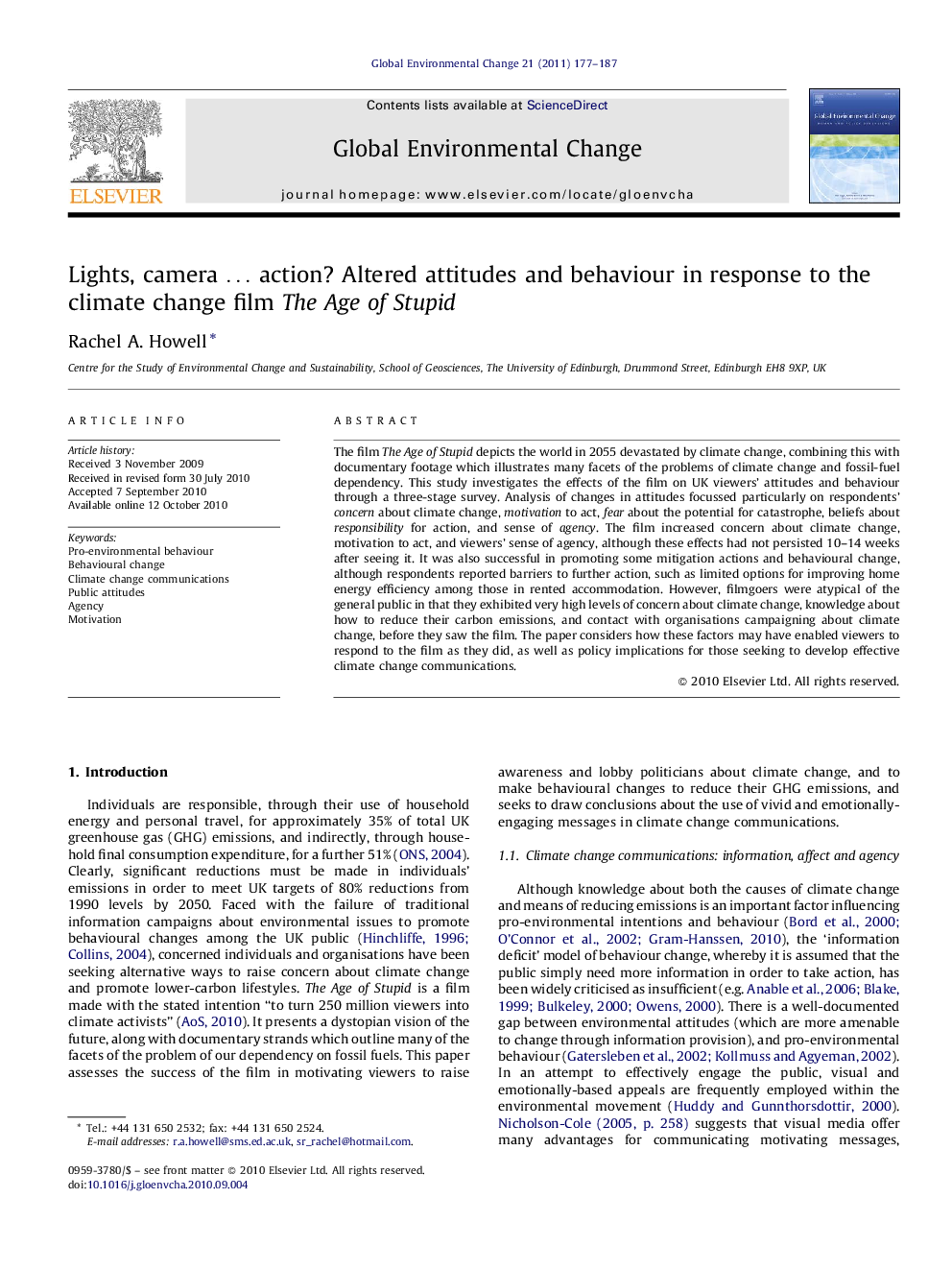| کد مقاله | کد نشریه | سال انتشار | مقاله انگلیسی | نسخه تمام متن |
|---|---|---|---|---|
| 1054879 | 946861 | 2011 | 11 صفحه PDF | دانلود رایگان |

The film The Age of Stupid depicts the world in 2055 devastated by climate change, combining this with documentary footage which illustrates many facets of the problems of climate change and fossil-fuel dependency. This study investigates the effects of the film on UK viewers’ attitudes and behaviour through a three-stage survey. Analysis of changes in attitudes focussed particularly on respondents’ concern about climate change, motivation to act, fear about the potential for catastrophe, beliefs about responsibility for action, and sense of agency. The film increased concern about climate change, motivation to act, and viewers’ sense of agency, although these effects had not persisted 10–14 weeks after seeing it. It was also successful in promoting some mitigation actions and behavioural change, although respondents reported barriers to further action, such as limited options for improving home energy efficiency among those in rented accommodation. However, filmgoers were atypical of the general public in that they exhibited very high levels of concern about climate change, knowledge about how to reduce their carbon emissions, and contact with organisations campaigning about climate change, before they saw the film. The paper considers how these factors may have enabled viewers to respond to the film as they did, as well as policy implications for those seeking to develop effective climate change communications.
Research highlights▶ The Age of Stupid attempts to convince viewers to take action to mitigate climate change using an appeal based on the need to avoid disaster. It does seem to have had some success in raising levels of concern and motivation to act immediately after seeing the film. ▶ 60% of respondents to the follow-up questionnaire attributed at least one action they are taking (or doing more of), to the effect of having seen the film. ▶ However, heightened levels of concern and motivation were no longer in evidence at the time of the follow-up survey, 10–14 weeks after the release of the film, and the actions or behavioural changes that respondents were most often engaged in are those that require less effort, money or time. ▶ The filmgoers surveyed were a very particular group, not representative of the general public. They exhibited very high levels of concern about climate change and motivation to act to mitigate it, even before seeing the film.
Journal: Global Environmental Change - Volume 21, Issue 1, February 2011, Pages 177–187